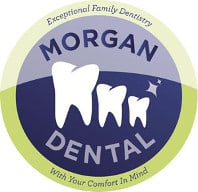1. It is recommended that you take something for pain-relief within one hour of leaving our office. It is best to get the medication into your blood stream before the anesthesia begins to subside. Ibuprofen (Advil, Motrin) is very effective. Two to four tablets may be taken up to four times a day for the next 3–4 days (if needed) to help control the sensitivity in this area. If you have a medical condition or gastrointestinal disorder which precludes ibuprofen, acetaminophen (Tylenol) is a substitute, although it does not contain anti-inflammatory properties. Aspirin and aspirin-containing products are NOT advisable, as they tend to increase bleeding from the area that was treated.
2. If you are experiencing discomfort, you can put an ice pack over the treated area for 30 minutes when you first get home to minimize swelling.
3. Please do not chew or attempt to eat on the side of your mouth that has been worked on while this area is still numb.
4. Whenever possible, try to chew on the opposite side from the treated tooth until you have a crown placed. Until that time, your tooth is still weak and could fracture.
5. Do not smoke during the first 24 hours and minimize the number of times you smoke during the remaining healing process.
6. Avoid strenuous exercise for 24 hours.
7. Please avoid crunchy or hard foods which could cause the tooth without a crown to fracture.
8. A putty-like material is placed in your tooth after completion of your root canal treatment. If left too long it can allow bacteria to re-enter your treated tooth leading to further treatment. It is recommended that you return to this office no later than 3–4 weeks after root canal treatment to have your tooth prepared for a crown and build-up.
9. Delay in obtaining your final restoration (a crown unless otherwise discussed) may result in fracture and/or possible loss of the tooth.
Want to learn more? See Root Canal Treatment.
